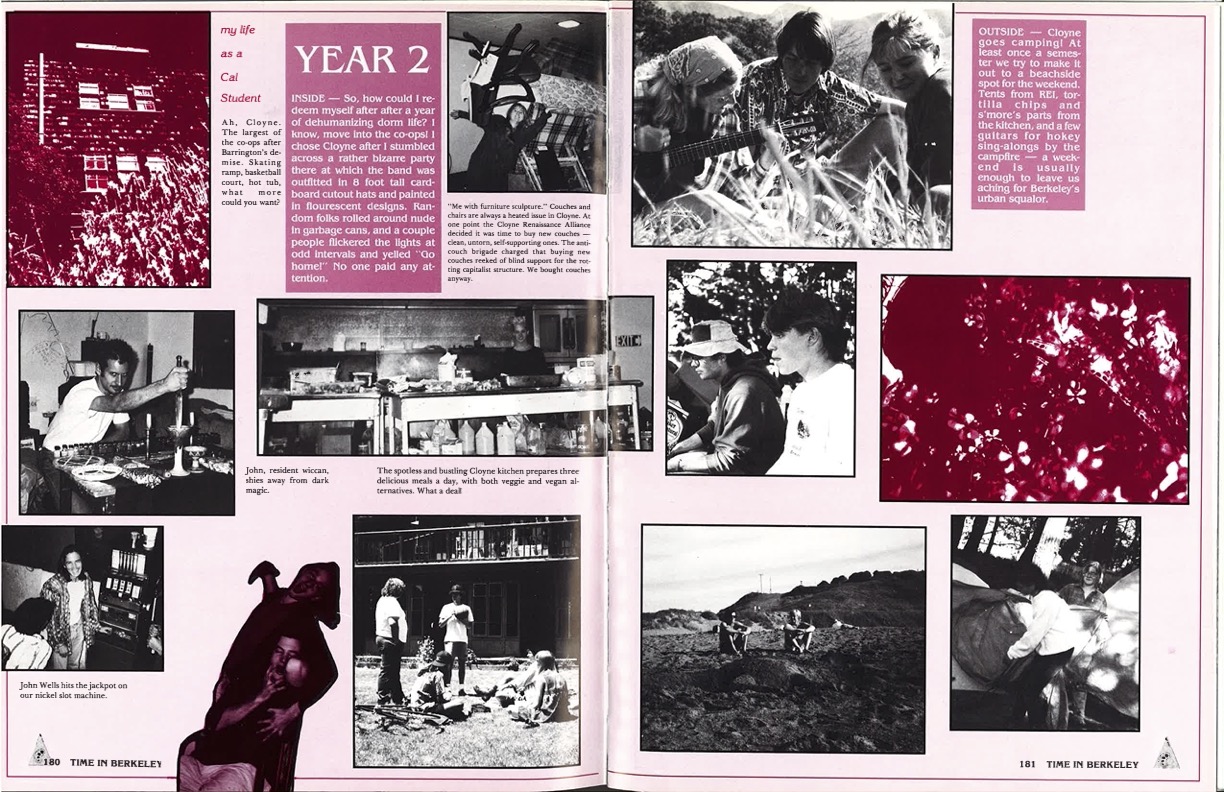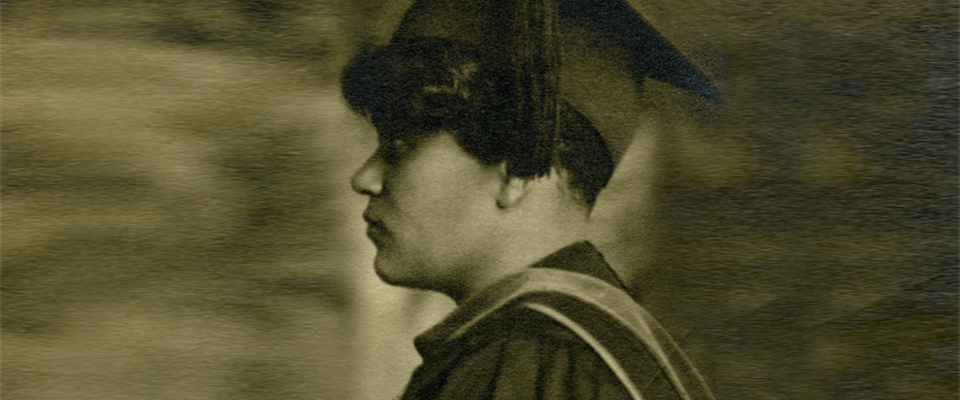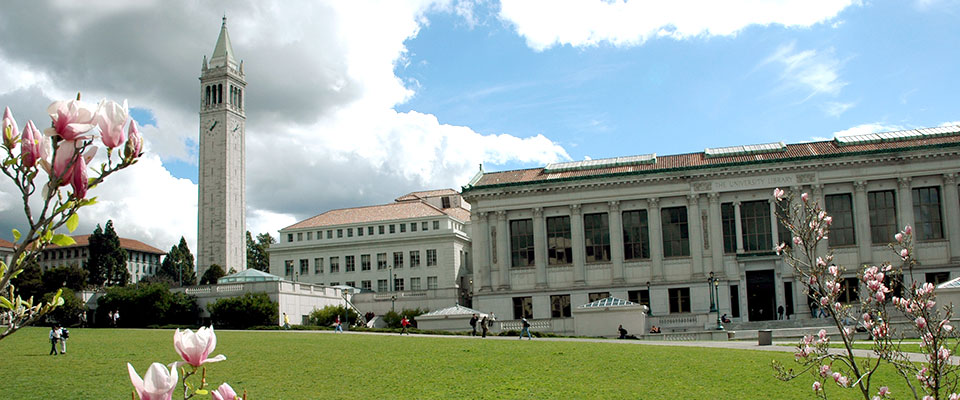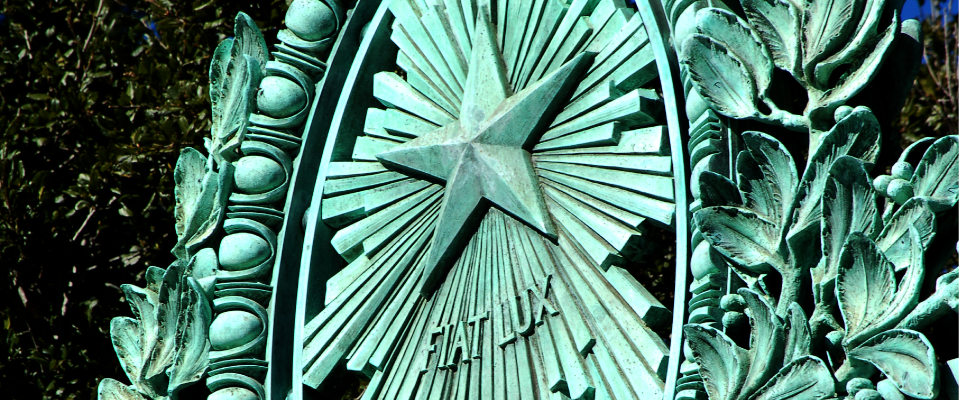In honor of their tenth, twentieth, and thirtieth anniversaries, we’ve remembered the milestones from these graduating classes of the last 30 years, to bring you back to the good old days.
Class of 2012
Although it may not feel like it, it has been a decade since the Class of 2012 graduated from UC Berkeley. Here are some of the things that happened at the turn of the 2010s:
Berkeley and Pop Culture
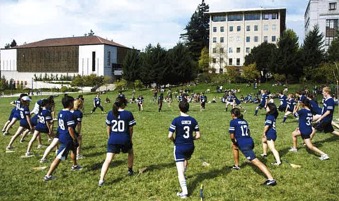
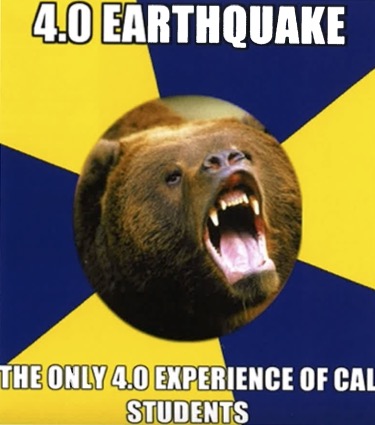
In 2011, one of Berkeley’s most beloved extracurricular clubs was founded—the Cal Quidditch team. What began as a fictional sport from the best-selling Harry Potter franchise became a popular Cal club, where players wielded brooms, wore team uniforms, and chased a player dressed in yellow known as “the Snitch.” Several celebrities made guest appearances at a variety of events around campus, including actors Johnny Depp, Jane Lynch, and John Cho. Finally, the rise of internet memes made the struggles of student life a bit more bearable: “4.0 earthquake… the only 4.0 experience of Cal students.”
A Changing Landscape
From large earthquakes to the Telegraph fire, big changes, both physical and cultural, took the campus by storm. At Zellerbach Hall, TedxBerkeley, an independently organized speaker series discussing technology, entertainment, and design, brought a variety of interesting stories to the student body. Some of the lecturers included a Google marketing manager, an IBM sales representative turned Broadway singer, a Berkeley professor and researcher on human-computer interaction, and a classically trained hip-hop violinist.
During these years, Professor Saul Perlmutter won the Nobel prize in Physics for discovering the accelerating expansion of the universe by looking at supernovae across the stars. His achievements were even referenced in the popular sitcom The Big Bang Theory.
Students in Action

During the Class of 2012’s college years, the “Occupy Wall Street” movement blew up across the United States, and Berkeley was no exception. The “Occupy Cal” movement reached its peak in the fall of 2011. Students used the hashtag “#occupycal” on Twitter to stay up to date with ongoing events. Robert Reich, former Secretary of Labor and well-known Berkeley professor, spoke during the duration of the movement, which further encouraged students to don their pajamas and camp outside Sproul Hall.
Another notable political moment was the Berkeley College Republicans’ Diversity Bake Sale, which aimed to advocate their stance on affirmative action, furthering discussion on the topic. A student group called “The Coalition,” formed in response to the BCR’s bake sale, held a counterprotest on Sproul Plaza. Club members dressed in all black to condemn the ideas that Berkeley College Republicans’ bake sale promoted.
Class of 2002
It has been 20 years since the Class of ’02 left UC Berkeley’s campus to take on the world. Here are some highlights of their time at Cal:
The Rise of the Cell Phone
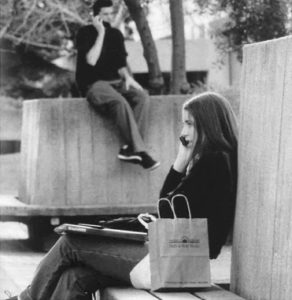
Cell phones took the student body by storm, changing phones from a safety tool into a way to stay socially and actively connected with their friends, at any time or place. From pop song ringtones to overloaded cell reception at football games, cell phones became a way for people to express their unique tastes and interests with flashy cases, stickers, and different types of devices. One thing is for sure: personal cell phones became central to communicating in everyday student life.
Campus Eateries
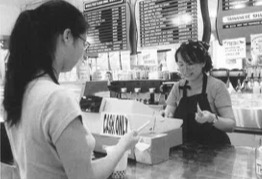
In 2002, hungry students were big supporters of Berkeley’s local eateries, like IB’s Hoagies and Cheesesteaks, which provided a new variation on the sandwich genre. IB’s is still a popular stop for students during lunch and dinner time. Quickly, a Taiwanese dessert and snack shop, was one of the first restaurants to offer a future Berkeley hit: boba. The tapioca pearl drinks drew anywhere between 400–500 students daily! The Blue Nile offered authentic Ethiopian cuisine in a comfortable setting. It was an ideal spot to bring a date for an affordable meal.
Life After 9/11
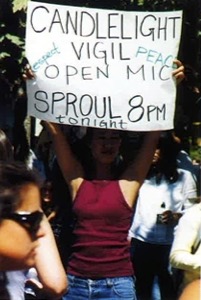
The UC Berkeley community was rocked by the tragic events of September 11, 2001. The tragedy brought the campus together, and in true Berkeley fashion, provided a relevant political issue on which students could express their opinions. Students gathered in huge numbers to honor those fallen with a vigil on Memorial Glade, and continued to remember those like Mark Bingham ’93, rugby player and gay rights advocate, who helped bring down United Flight 93, before reaching its likely target of Washington D.C., saving countless lives.
Entering the Job Market
Y2K was an exciting time for everyone, especially students looking towards the job market, as new and upcoming businesses like Amazon began recruiting new grads. Career fairs and mock interviews on campus, through Berkeley’s Career Center, connected seniors with potential employers, helping students to put their Berkeley-gained skills to use in the employment world.
Class of 1992
Finally, we look back nearly 30 years ago to the Class of 1992 who created a cultural and political impact at Berkeley. Here are some top memories from their years.

A Changing Political World
The early 90’s were full of significant events in both American and international politics. In 1991, President Gorbachev’s resignation marked the end of the USSR and the creation of the new Russian commonwealth of states, leaving many to wonder what would come next. That same year, thousands watched as Clarence Thomas was nominated and appointed to the Supreme Court, in a confirmation hearing that centered around allegations of misconduct made by law professor Anita Hill. It was also the year soldiers fighting in the Gulf War returned home, and from Hollywood to New York, nearly 1.6 million people waited to give them a warm welcome.
The Fight for Rights
The early 90’s were an important time for women’s rights. The student body was aware of issues like the gender pay gap, the fight for women’s representation in government, and the balancing of women’s personal and professional lives. California Representatives Barbara Boxer and Dianne Feinstein inspired women to continue the pursuit of equality, as hundreds of female candidates won their primary elections across California.
This was also a time where mental health, the healthcare system, and religion and spirituality became a popular topic of discussion for students, as many began looking at new and non-traditional perspectives on psychology.
Life on Campus
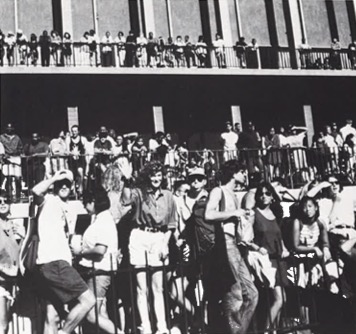
On campus, things were very different from today. What are now known as Foothill and Stern Halls were part of “Unit 4” and each unit had its own dining commons: Units 1 and 3 had the easiest dining halls to sneak into, while Unit 4’s commons was ranked as having the best food. One of the most popular late night destinations was Cafe Neutron, located on Center and Hearst, one of the only places students could grab a cup of coffee and a donut at 3 a.m. After a proposal by the administration to lease People’s Park to the city of Berkeley, advocates once again came to the defense of the park. After six days of protests and nearly 90 arrests, the park remained but questions of its purpose and future were on students’ minds.
While student experiences and day-to-day life have changed drastically over the last 30 years, what it means to be a Golden Bear has stayed the same. From hanging out with friends on the Glade to fighting for important change, these classes embody the Berkeley spirit: being brilliant, resilient, and compassionate in a changing world.






